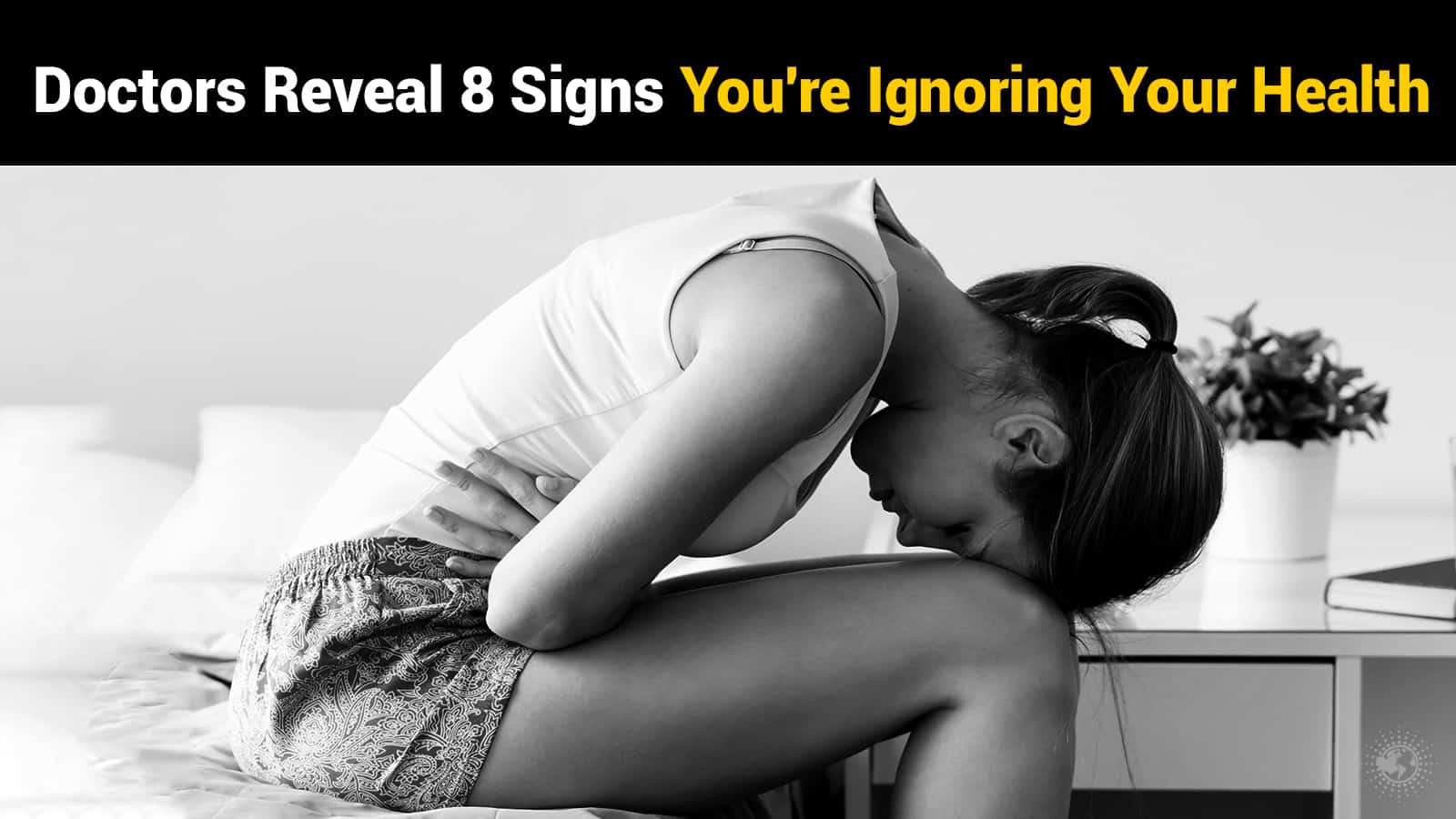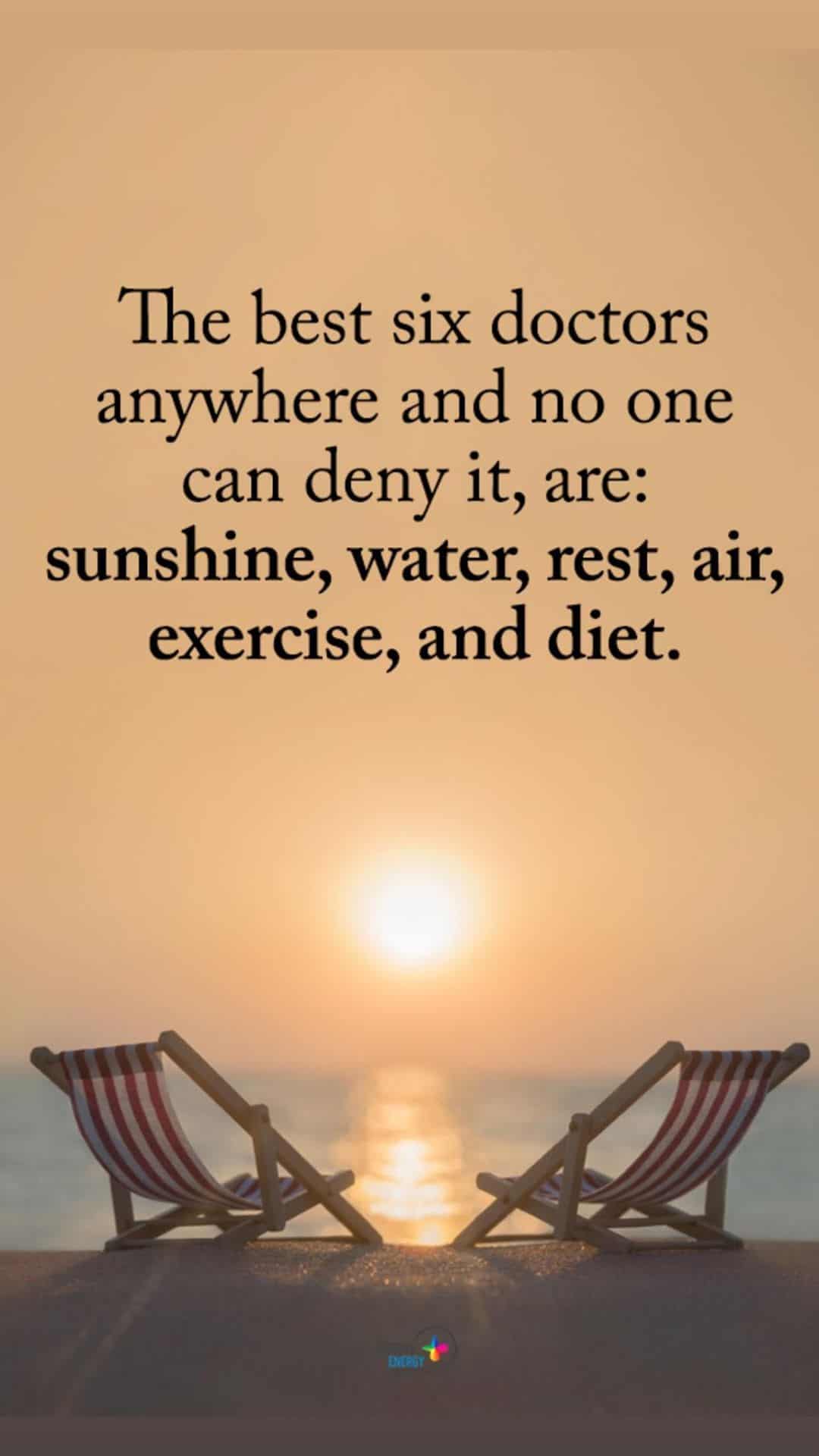Are you ignoring your health without realizing it?
It can be challenging to find time to take care of your health with the busy schedule you might keep in everyday life. Even if you do keep an eye on your vitals, there’s a good chance that you’re only looking out for significant or severe symptoms that cast no doubt on the fact that something may be wrong.
Unfortunately, many health-related problems start with the most subtle and unnoticed signs. Catching these problems from the get-go can help to prevent them from becoming even more significant issues later on. For many of these problems, by the time they escalate to an obvious point, they can be much more severe. Therefore, they present much more of a risk to you. Here’s how doctors reveal eight signs you’re ignoring your health.
1. Constant Fatigue
According to functional medicine expert and cardiologist Martin G. Bloom, MD, constant sleepiness or drowsiness can be a clear indication that there’s something amiss with your health. A few issues could be at play, including:
· Poor Lifestyle Choices
Individual decisions, such as choosing to eat poorly or getting insufficient exercise, can have adverse effects on sleep ability, according to research.
· Insufficient Sleep
If you’re not sleeping enough, it makes sense that you’d feel fatigued virtually all the time. This sluggishness could be due to nighttime habits, such as eating or drinking too late. It could also be because you have inconsistent sleeping and waking times, which can result in your circadian rhythm messing up, causing a lower chance of positive sleep experiences.
· Poor Mental Health
Even if you follow all the textbook rules on health and sleep, poor mental health can cause you to feel fatigued, even after a full night’s sleep. On top of that, many mental disorders come with comorbid insomnia. Make sure you speak to a relevant mental health professional if you feel this may be the issue for you.
· Sleep Disorders
If you feel like you’re sleeping the required amount of hours and are living a relatively healthy lifestyle, there’s a chance that a more serious issue is at fault. Sleep apnea and other disorders can ruin sleep quality, leading to exhaustion and fatigue, according to studies.
2. Acne
Acne, in most cases, is hormonal or genetic. This condition means the phase of a menstrual cycle, your age, or your family’s history of acne is more likely to be a factor in determining the cause of acne.
However, Mount Sinai Hospital director of cosmetic and clinical research in dermatology Joshua Zeichner, MD, says that some other factors can also cause skin breakups. Here are some examples:
· Dehydration
Oily skin commonly causes breakouts. But according to Mount Sinai Medical Center’s assistant clinical professor of dermatology Francesca Fusco, MD, dry skin can also be bad for you. The small cracks in dry skin can allow for bacteria and dirt particles to find their way in, causing acne. A lack of sufficient hydration is a common cause of dry skin – and seeing as even a little dehydration can harm your body, it’s a direct indication that you need to drink more water.
· Stress
Stress on its own isn’t necessarily enough to bring you from a clear face to a full-fledged breakout, says Yardley Dermatology Associates director and author Richard Friend, MD, Ph.D. But stress can cause spikes in a hormone known as cortisol and also leads to the release of inflammatory chemicals. These issues combined cause inflammation and can be a trigger for breakouts. Even positive stress can do this!
· Bad Diet
A poor diet can lead to inflammatory disease, and inflammation is a driving factor in acne. Many foods are found to have bad links to acne triggers, including white carbohydrates, fatty foods, and sugary goods. MDacne medical director and dermatologist Yoram Harth, MD, adds that dairy products, especially ones that contain more sugar or more progesterone-equivalent hormones, can worsen insulin-like growths to the point of triggering acne.
3. Severe Stress
Ignoring your health can cause you to feel the impact of stress in your life.
We’ve briefly talked about how stress can cause acne, but did you know stress itself can be a sign that you’re ignoring your health? Severe, constant, or chronic levels of stress can all point to some serious hormone imbalances in the body.
Cortisol is a human hormone released by the adrenal glands. They’re commonly called “stress hormones” because they’re released when you experience stress. Essentially, they trigger a fight-or-flight response in you.
In small amounts, this is completely fine, and perhaps even healthy; it helps you overcome difficult situations. But with chronic stress, cortisol is always elevated, causing a more long-term panic response that simply doesn’t die down and can cause symptoms of mood imbalance, depression, or anxiety, says Bloom.
On top of that, severe stress can be a reflection of decreased positive thinking, anxiety, depression, and other serious mood-related issues. You should speak to a therapist if these problems are plaguing you.
4. Tooth Damage
Have you noticed any changes in your teeth? Perhaps they’ve become very stained, feel a small amount of pain, have inflamed gums, or are lacking their opacity. All of these forms of mild tooth problems, all the way up the spectrum to severe tooth damage, can be a sign that something’s wrong with your health.
According to the University of North Carolina School of Medicine gastrointestinal (GI) specialist Evan Dellon, MD, many patients don’t realize that certain underlying health conditions with mild symptoms are the reasons behind their tooth-related woes. For example, tooth enamel can be worn down because of:
- Sugary drink consumption
- Heartburn
- Acid reflux
- Gastrointestinal issues
Most of these conditions can be quite serious, so it’s a good idea to speak to a dentist or doctor if you suspect that you have acid reflux. The condition can not only cause your teeth to decay but even lead to higher esophageal cancer risk.
5. Leg Muscle Twitching
It’s not uncommon for leg muscles to twitch now and then. But those twitches at a high frequency can tell you something about your health you may not have been aware of. They may point to:
· An Overly Sedentary Lifestyle
If you spendthe majority of your waking hours sitting, you could develop muscle cramps and twitching. The actual twitches aren’t inherently bad, but a sedentary life can have negative effects on your health that have been well-researched over the years.
· Low Magnesium Levels
According to Carillon Miami Wellness Resort medical director Adonis Maiquez, MD, a lack of magnesium in the diet affects blood flow and heart strength. Consistently eating too little magnesium may lead to cardiovascular issues.
· Artery or Vein Problems
Cramping and twitching in the leg, especially when accompanied by pain or swelling, can be the sign of a vein or artery issue. This condition can be quite dangerous and usually requires quick medical attention.
6. Brain Fog
Brain fog is a bit of a blanket term, typically referring to several different symptoms that make you feel like your brain is going at a slower pace. Symptoms could include:
- Feeling spaced out
- Being forgetful
- Inability to focus
- Fatigue
- Feeling mentally drained or burned out
- Decreased positive thinking
Many people dismiss brain fog as nothing but a bad day. Sometimes, it can just be a rare, one-time deal due to poor sleep or stress the day before. However, brain fog may also be an indication of:
- Thyroid problems
- Hormone imbalance
- Digestive problems
- Mood disorders
- Chronic illness
Bloom recommends that signs of forgetfulness are not ignored or explained away with the word “aging”. Brain fog can be indicative of many different issues, including some that affect your organs.
7. Ignoring Your Health May Stem from Too Much Alone Time
How many hours per day do you spend alone? Are you a textbook introvert who shuns social gatherings and prefers to keep to yourself? Whatever your reason for being alone so often, it’s important that you note its potential downsides and what it could say about your health.
Social activities can relieve anxiety and stress, and a lack of interest in spending time with friends can point to a lack of motivation, depressive symptoms, and similar issues. Social interaction is very positive for you anyway, with results such as:
· Better Positive Thinking
Forging connections with others allows you to maintain a more positive mental state. You feel like you belong somewhere, you have bonds with others who care about you, and you’re more connected to the outside world.
· Stronger Immunity
Researchers found links between immune system function and social interaction, especially in senior citizens.
· Sharper Thinking
When you engage in social activities, you also engage your brain. This allows for a decreased risk of cognitive decline while also keeping younger brains sharp, perceptive, and active.
· Better Overall Health
Engaging in social relationships usually points to a more active lifestyle. You may also be motivated to be on par with the health of those around you, which gives you a much increased chance of working on your health.
· Longer Lifespan
Numerous studies have found that an active social life can help the elderly lengthen their lifespan. They have fulfilling connections, supporting peers, and more interest in staying healthy.
8. Lost Interest In What You Love
Have you suddenly lost interest in your hobbies and passions? Are the things you once cared about no longer worthwhile to you? According to author, plus licensed marriage and family therapist Kiaundra Jackson, this could be a sign of bad mental health strain, primarily in the form of anxiety or depression.
If you face these issues, not only is your mental state at risk of deterioration in sinisterly low-key ways that may slip past your attention, but you’ll also see a lot of obvious negative changes. You might:
- Deal with emotional fatigue
- Face burnout
- Turn to vices or harmful actions to fill an emotional need.
- Become uncaring of responsibilities
If you are experiencing depressive or anxious symptoms, speak to a mental health professional as soon as possible.
 Final Thoughts On Some Signs You’re Ignoring Your Health, According To Doctors
Final Thoughts On Some Signs You’re Ignoring Your Health, According To Doctors
Your health needs must be taken care of, and it’s imperative that you take the time to pay closer attention to the subtle signs it may be showing you of deeper problems. If you notice any of these signs you’re ignoring your health, try taking steps to pay more attention to your body’s needs. If you need help, speak to your doctor or relevant medical professional for advice or aid.



















